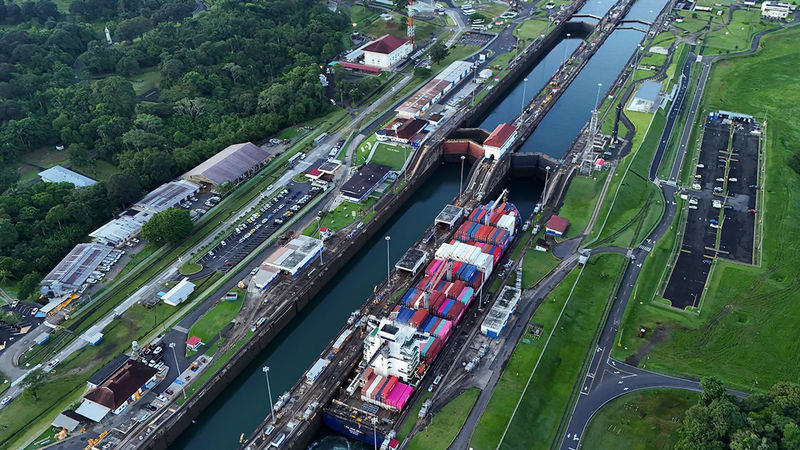
China Eyes Greater Control of Panama Canal as BlackRock Deal Collapses: A Growing Threat to U.S. Interests
China may soon gain unprecedented influence over the Panama Canal, one of the world’s most strategic maritime routes, following the collapse of a $23 billion deal between U.S.-based BlackRock and Hong Kong’s CK Hutchison. The failed agreement, which included control of two vital Panamanian ports, is a troubling sign of Beijing’s expanding grip on global infrastructure — and a stark warning to the United States.
The original deal, backed by former President Donald Trump, aimed to reduce Chinese control over the Panama Canal. Trump even suggested that the U.S. should consider “taking back” the canal, which it built in 1914 and handed over to Panama in 1999. However, Beijing pushed back, pressuring CK Hutchison to include China’s state-owned shipping giant Cosco in the deal. As a result, CK Hutchison announced that the exclusive talks with BlackRock had expired and signaled interest in bringing in a “strategic investor” from the People’s Republic of China.
This shift opens the door for Cosco — already one of the world’s largest port operators — to gain control over dozens of global ports, including key access points to the canal at Balboa and Cristobal. Such a move would effectively hand China a geopolitical and economic advantage, especially given its dominance in global manufacturing and shipping.
Washington has long raised bipartisan concerns over China’s growing presence in Latin American infrastructure. But Trump was the first modern U.S. president to explicitly challenge China’s role in Panama. His warnings now seem prophetic. If Cosco steps in, the U.S. risks losing critical leverage in a region vital to both commerce and military logistics.
Dane Chamorro of Control Risks warns that while China may be excluded from the Panamanian ports for now, it is likely to gain control of many others globally as a concession. This could make Cosco the dominant port operator worldwide — a position that threatens U.S. economic security and naval mobility.
Moreover, this episode highlights how Hong Kong businesses, once seen as semi-autonomous, now face increasing pressure to align with Beijing’s national interests, even at the cost of deals with Western partners.
The United States must act swiftly to counter China’s port grab strategy. Letting Beijing control chokepoints like the Panama Canal is not just bad business — it’s a national security risk.